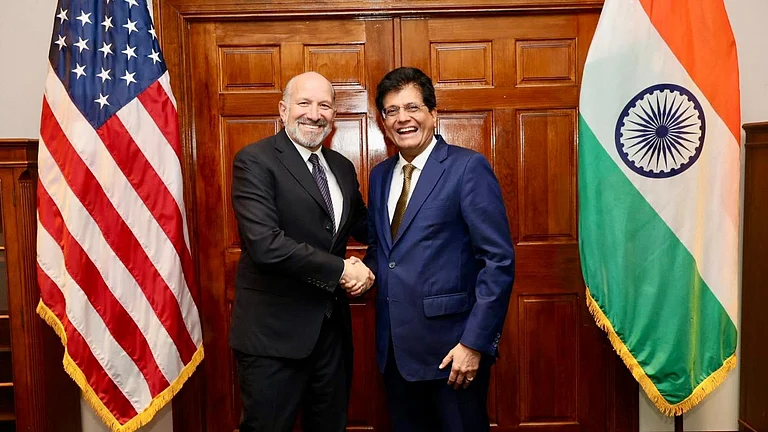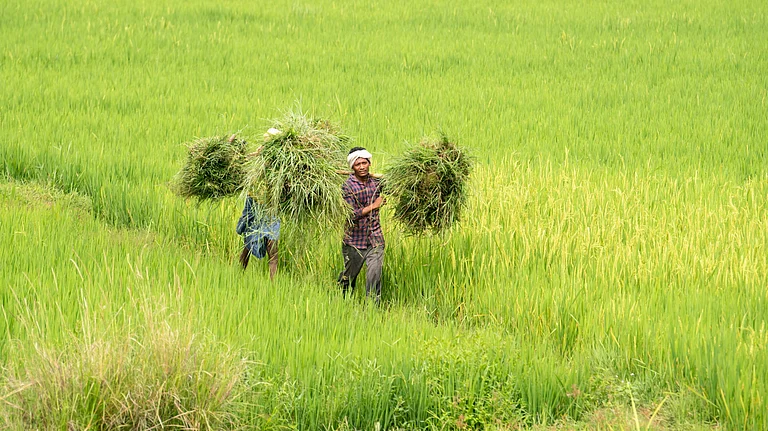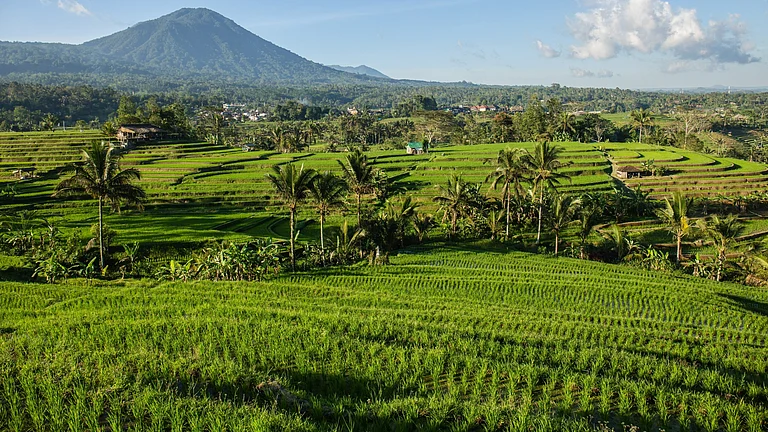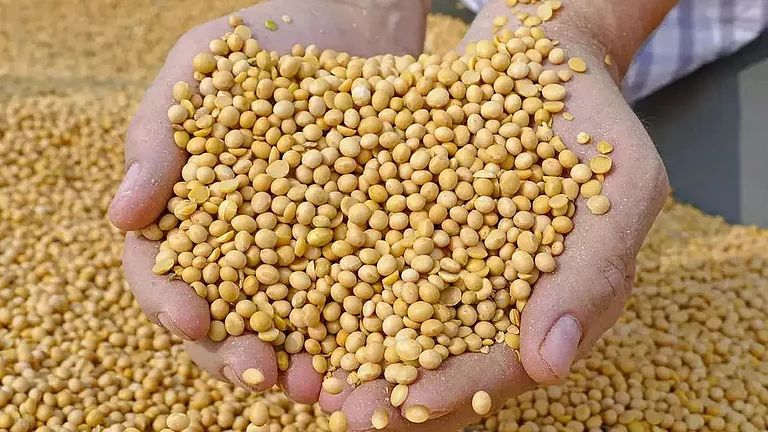
Aslam Khan (40), a farmer from Bakrapur village, Barabanki (UP), shifted from banana cultivation to fish farming in 2018.
He now owns 24 ponds spread over 8 acres, two nurseries, and employs at least 10 people.
Supplies fish seeds to 350+ farmers across Barabanki, Lucknow, Sitapur, Unnao, Ayodhya, Bahraich, and Gonda.
In 2024, stocked 3 lakh Pangasius seeds, of which 2.2 lakh yielded 162 tonnes of fish sold. Currently has 40,000 fishes (400–500 gm each) ready for December sale.
A traditional banana farmer in Uttar Pradesh's Barabanki district, who adopted fish farming in 2018 with three ponds on 27,000 sq ft of land, has now turned into a supplier of fish seeds for more than 350 farmers, owning 24 ponds and employing at least 10 people.
Aslam Khan, 40, a resident of Bakrapur village in Barabanki, and many other farmers have become the flag bearers of the government's scheme to promote pisciculture, according to an official statement.
"Through fish farming, young men and women are scripting new success stories that showcase the true strength of central and state government schemes. These stories prove that change is happening at the grassroots," N S Rahmani, Director of UP Fisheries Department, said in the statement.
At present, Aslam carries out fish farming on eight acres with 24 ponds and two nurseries. This year, he stocked three lakh Pangasius fish seeds, of which 2.20 lakh have already yielded 162 tonnes of fish sold.
Aslam's farms have 40,000 fishes, each weighing 400-500 grams, ready to be sold in December.
Since January 2019, he has been supplying over 350 farmers across Barabanki, Lucknow, Sitapur, Unnao, Ayodhya, Bahraich, and Gonda.
Ascribing his success to the support he received from the state fisheries department, Aslam said that the handholding by the department has been commendable.
Sharing his journey since 2018, Aslam said he was first intrigued by fish farming when he visited a fish farm at Gangwara village, which was being run by Mohammad Asif Siddiqui.
After facing continuous losses in banana cultivation, he began learning pisciculture and started with three ponds on 27,000 sq ft of land, raising Pangasius fish.
Initially, Aslam suffered losses due to poor fish seeds and lack of knowledge. Without losing hope, he again stocked his ponds with 35,000 Pangasius fingerlings and produced 21 tonnes of fish within six months. Each fish weighed about 700 grams. The first produce from his farm earned an income of ₹8,40,000.
Buoyed by his achievement, in 2018 Aslam made another pond on a one-acre land in which he kept Indian major carp fish along with Pangasius.
Aslam has also installed a recirculating aquaculture system (RAS) at his farm.
The RAS unit would help him in rearing Pangasius seeds during winters, so that by February and March, fish seed can be provided to other farmers. To further benefit the farmers, Aslam also aims to register a farmer producer organisation (FPO).
Since 2017, Pangasius farming is being done in about 25 hectares in Nindoora block (in Barabanki), while each farmer like Aslam is providing direct employment to at least ten people.
"Under the leadership of the state government, the benefits of every scheme are reaching the communities and every household. By embracing opportunities like fish farming, people are not only becoming 'atmanirbhar' (self-reliant), but are also driving the economic growth of the entire state," Rahmani said.
































